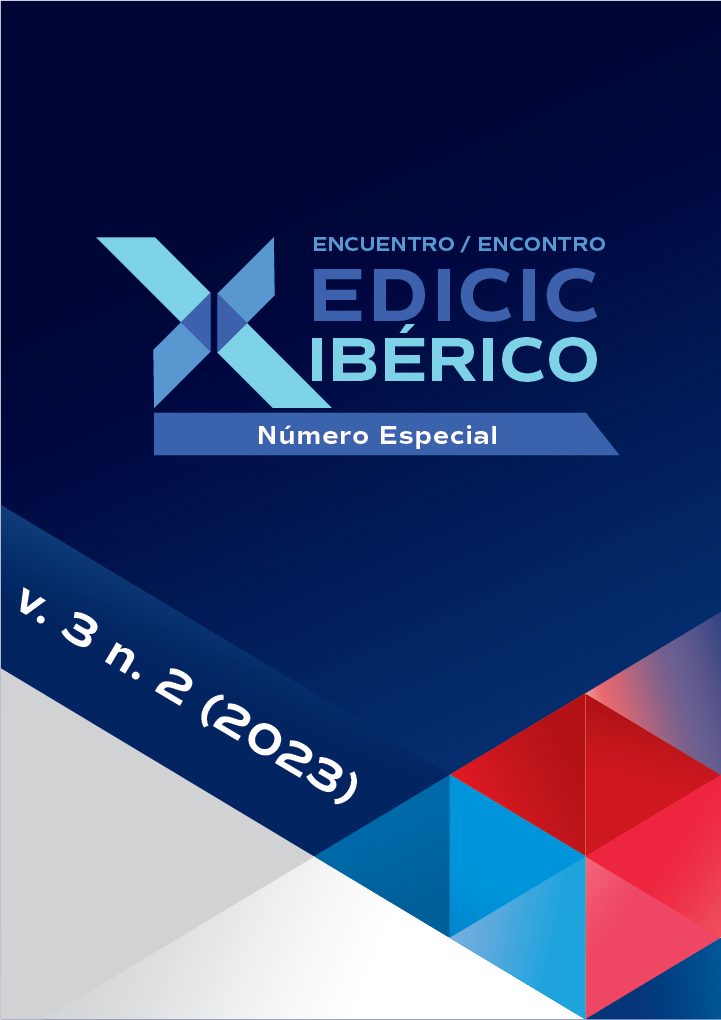Macrolibraries as a proposal for action of informational units
DOI:
https://doi.org/10.62758/re.v3i2.209Keywords:
Macrolibraries, Hybridity in Libraries, Concept of Hybrid Library, Development Typologies, Public SphereAbstract
The distinctive and fundamental libraries’ properties are changed over time, so these institutions are influenced by the needs and particularities of their communities, which also are transformed. Some of these changes reflected in the nomenclature used to refer to the characteristics of the libraries. Based on this thought, of a library closer to the daily lives of individuals, it was needed to reflect about conceptual nomenclatures to distinguish the characteristics of libraries. An example is the paradigm of hybridity, which started in 1990 and integrates the new information technologies with the existence of the libraries. The institution's existence may not be fully understood if it does not update itself to integrate society. The management of libraries has changed into the journey of society, since they are linked to their communities. Thus, to work with hybridity in libraries aims to integrate individuals into their communities, to support their information needs, and to act with knowledge and intelligence, in favor of a cultural management policy that promotes local development. In this way, the objective of this research was to propose a concept of hybridity, based on the analysis of contemporary forms of action identified in the daily life of libraries. The work resulted in a new nomenclature for libraries: the macrolibraries. The study is qualitative, exploratory, and carried out a theoretical-epistemological and field research. It used the Multimodal Discourse Analysis as research method. The Multimodal Discourse Analysis method was applied in the analysis of the hybrid library concepts raised in line with the insertion of the researchers in hybrid libraries and with their discussion with specialists from the United States. As results was possible to identify that hybridity should be understood beyond its physical infrastructure, as a representative factor to develop communities. The hybridity promotes ways to use technology in favor of a collective intelligence, approaching knowledge networks, which can bring new perspectives to the libraries. Among its constitutive elements, the availability of large-scale resources, printed and digital information, integrated information services, interaction between people and technology, as well as the impact of these libraries on the public management, such as human, social, economic, cultural, and sustainable development are highlighted.
References
Benoît, G. (2002). Toward a critical theoretic perspective in information systems. The Library Quarterly, 72(4), 441-471. DOI: https://doi.org/10.1086/lq.72.4.40039792
Capurro, R. (2003). Epistemologia e Ciência da Informação. Encontro Nacional de Pesquisa em Ciência da Informação, Belo Horizonte, MG, Brasil. http://www.capurro.de/enancib_p.htm.
Capurro, R. (1986). Hermeneutik der Fachinformation. Alber.
Drucker, P. F. (1997). Administrando em tempos de grandes mudanças. Pioneira.
Drucker, P. F. (2010). Administração de organizações sem fins lucrativos: Princípios e práticas. Pioneira.
Ellis, D. (1992). Paradigms and proto-paradigms in information retrieval research. In V. Pertti & C. Blaise (Eds.), Conceptions of Library and Information Science: Historical, empirical and theoretical perspectives. (pp. 165-186). Taylor Graham.
Fowke, G. (2019). Librarians before congress: advocacy and identity. Legal Reference Services Quarterly, 37(3-4), 2019, 236-256. DOI: https://doi.org/10.1080/0270319X.2018.1580101
Maccoll, J. (1997). ARIADNE: The hybrid magazine in the hybrid library. New Review of Information Networking, 3. https://www.tandfonline.com/doi/abs/10.1080/13614579709516899?journalCode=rinn20. DOI: https://doi.org/10.1080/13614579709516899
Mintzberg, H. (2010). Desvendando o dia a dia da gestão. Bookman.
Morin, E. (2015). Introdução ao pensamento complexo. Sulina.
Orera-Orera, L. (2007). The university library in the context of the new social and educational model. El profesional de la Informacion, 16(4), 29-337. DOI: https://doi.org/10.3145/epi.2007.jul.07
https://search.proquest.com/docview/57702579?accountid=8112.
Saracevic, T. (1995). Interdisciplinary nature of information science. Ciência da Informação, 24 (1), 36-41.
Silva, R. C. da. (2017). Gestão de bibliotecas públicas no contexto híbrido: Um estudo comparativo de bibliotecas híbridas no âmbito nacional e internacional em prol do desenvolvimento de comunidades [Dissertação de Mestrado, Universidade Estadual Paulista]. Universidade Estadual Paulista. https://repositorio.unesp.br/handle/11449/150798. Acesso em: 31 jul. 2017.
Smircich, L. (1983). Concepts of culture and organizational analysis. Administrative Science Quarterly, 28(3), 339-358. DOI: https://doi.org/10.2307/2392246
Sutton, S. A. (1996). Future service models and the convergence of functions: the reference librarian as technician, author and consultant. In: Low, K. (Ed.), The roles of reference librarians, today and tomorrow (pp. 125-143), Haworth Press. DOI: https://doi.org/10.1300/J120v25n54_12
Vakkari, P. (2003). Task-based information seeking. Annual Review of information Science and Technology, 37, 413-464. DOI: https://doi.org/10.1002/aris.1440370110
Winograd, T. & Flores, F. (1986). Understanding computers and cognition: A new foundation for design. Ablex.
Downloads
Published
How to Cite
Issue
Section
License
Copyright (c) 2023 Revista EDICIC

This work is licensed under a Creative Commons Attribution 4.0 International License.
The Association holds the copyright of the texts it publishes and, therefore, adopts a Creative Commons License, CC BY 4.0 DEED Attribution 4.0 International (https://creativecommons.org/
You are free to:
- Share: copy and redistribute the material in any medium or format for any purpose, even commercially.
- Adapt: remix, transform, and build upon the material for any purpose, even commercially.






